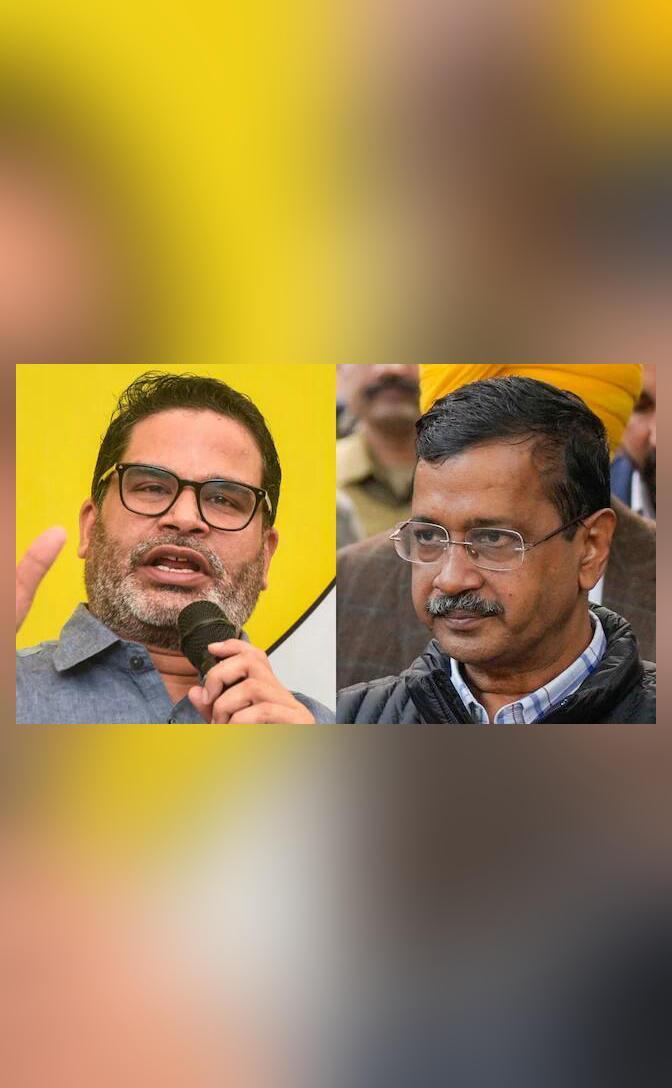
Prashant Kishor Lists Reasons Why Kejriwal & AAP Lost in Delhi Elections
The Delhi Assembly elections, held in February 2020, saw the Aam Aadmi Party (AAP) suffer a crushing defeat at the hands of the Bharatiya Janata Party (BJP). AAP, led by Arvind Kejriwal, had been the ruling party in Delhi since 2013, but their victory streak came to an end with the party winning only 62 out of 70 seats. The defeat came as a shock to many, especially considering AAP’s impressive track record in the city.
In a recent interview, Prashant Kishor, a renowned politician and former political strategist, shed light on the reasons behind AAP’s defeat. Kishor, who has worked with several political parties, including the BJP and the Congress, has been critical of AAP’s strategies in the past. In his recent interview, he pinpointed several mistakes made by Kejriwal and AAP that led to their defeat.
One of the primary reasons Kishor cited was Kejriwal’s decision to resign as Delhi Chief Minister after securing bail in the liquor policy case. Kishor believed that this move was a “big strategic mistake” that hurt AAP’s campaign. According to him, Kejriwal should have resigned after his arrest, not after securing bail. This would have shown that he was taking responsibility for his actions and had the moral courage to step down.
Kishor argued that by resigning after securing bail, Kejriwal came across as someone who was trying to save his skin and avoid accountability. This perception, Kishor believed, damaged Kejriwal’s image and made him appear weak. Moreover, it also gave the BJP an opportunity to attack AAP and Kejriwal, portraying them as corrupt and arrogant.
Another reason Kishor cited for AAP’s defeat was the 10-year anti-incumbency factor. AAP had been ruling Delhi for a decade, and this had led to a sense of fatigue among voters. Many people felt that AAP had become complacent and was not delivering on its promises. Kishor believed that AAP failed to address these concerns and instead focused on personal attacks and mudslinging against the BJP.
Kishor also pointed out that Kejriwal’s fluctuating stance on joining and exiting the INDI Alliance hurt his credibility. AAP had initially decided to join the INDI Alliance, which was a coalition of opposition parties, but later decided to exit it. This led to confusion among voters and made them question Kejriwal’s commitment to his own party and its ideology.
Furthermore, Kishor believed that AAP’s campaign focused too much on Kejriwal’s personality and charisma, rather than the party’s policies and achievements. According to him, AAP failed to articulate a clear vision for the city and instead relied on Kejriwal’s popularity to win votes.
Kishor also criticized AAP for not addressing the concerns of the middle class and upper-middle class voters. He believed that AAP’s policies and programs were too focused on the poor and the marginalized, and did not resonate with the aspirations of the middle class.
In conclusion, Prashant Kishor’s analysis suggests that AAP’s defeat in the Delhi Assembly elections was the result of a combination of factors. Kejriwal’s decision to resign after securing bail, the 10-year anti-incumbency factor, his fluctuating stance on joining and exiting the INDI Alliance, and the party’s failure to articulate a clear vision for the city all contributed to AAP’s defeat.
AAP’s defeat is a wake-up call for the party, and it needs to re-examine its strategies and policies to regain the trust of the people. As Kishor said, “AAP needs to go back to its roots and focus on the issues that matter to the people of Delhi, rather than relying on Kejriwal’s charisma.”






